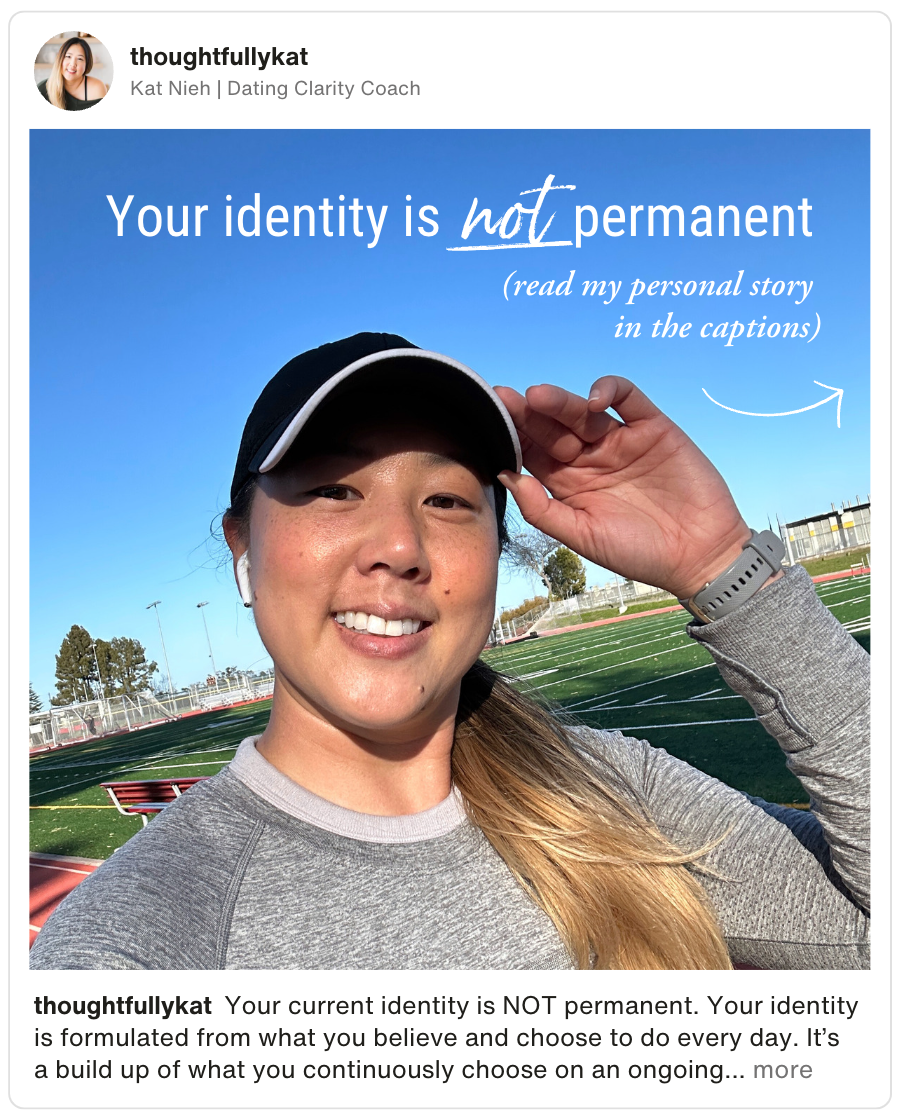I know what I need to do, but self sabotage pounces and overtakes me. I lose my willpower and I have no more self control. At that very moment, procrastination feels like the best… idea… ever.
Self doubt and self criticism fill my mind as they justify my continual avoidance. The worst is when I know that I’m doing it, and I still… can’t… stop.
In a blink of an eye, where did the time go? Shit! I shouldn’t have done that. Why did I let myself get distracted? Why did I spend so much time on that meaningless thing? Ugh, that other thing shouldn’t have taken that long either.
Great, now I feel horrible about it.
But heeeyyy, let’s make it even worse by piling on the guilt trip: “Good job wasting all that time, Kat.”
Oh, let's add in some potent doses of shame, too: “Wtf, Kat? What the hell is wrong with you? You should know better.”
*Ding* Achievement unlocked: Stress at sky high levels!
Each time I make myself wrong and bad, I feel worse. I know I can pivot into a better state. But there are these times when it backfires into continual self sabotaging behavior. Well, if I’m already doing this “bad thing”, then screw it, why not just do more of it? I’m already wallowing in all this guilt and shame, so what’s a little bit more?
Can you see how that can continue to cycle downwards?
Frustrated, I freaking declared, “This has to stop! I have to do something different!”
Whatever I was doing before was obviously not working.
The difference isn’t just changing the way I act, but also the way I see and feel about the situation.
Well, here’s a radical idea
What if I celebrated my self sabotaging behavior instead?
Huh?
Because the worst part of self sabotage isn’t the action itself but actually the thoughts and feelings I have of myself after I do those actions.
The actions themselves are neutral. It’s the thoughts and feelings you project onto actions that make them mean something in particular, which we often categorize as good or bad.
This is important because those thoughts and feelings highly influence what you choose to do next. This fork-in-the-road moment determines the outcome of your experience, which boils down to this simple question: “Did you get what you want?”
Your answer determines whether or not you feel fulfilled and happy in your current situation. And as those answers compile, they snowball into your current reality. That determines whether or not you feel fulfilled and happy overall in your life.
Celebrate self sabotage
So this is my new strategy: When I self sabotage, I’m going to celebrate it! Next, I’ll choose to look at the behavior in a different way.
C’mon, the fact that I KNOW I’m self sabotaging myself is already a win! It’s no longer an unconscious behavior that I’m accepting as a fact, norm, or a part of my identity. The first step of change is always awareness.
So how can you see self sabotage in another way or in a more positive light?
What if you’re giving yourself the time to “take a break” mentally or physically? Your brain or inner self needed to step away from this situation temporarily, so you could come back to what you’re working on with a fresh perspective.
What if you needed to put yourself back in that old, bad pattern to remind you who you no longer want to be and what you don't want anymore in your life? The self sabotaging behavior is showing you “Nope, not that anymore.” Celebrate it for reminding you how that feels again and that you want to change.
Can you see how changing how you interpret the situation can change how you feel about the actions or behaviors?
Change the way you label and see it
Instead of labeling the action as “self sabotage”, which comes preinstalled with a negative shameful connotation, what if you gave it a more neutral term like “feedback”?
Now ask yourself: “What is this feedback trying to show or teach me?”
You can change the way you see things just by the way you label them. Labeling it something negative oftentimes brings up all the past related experiences, which piles on even further more guilt, shame, and negativity. Then the common result is beating yourself up more for doing it.
So what is another term you can relabel “self sabotage” to? By simply changing its name, you have now removed the power you have previously given it.
Take your power back.
Then you’ll have the ability to choose what to do next.
You cannot control your past, but you can control your present moment. Choose to take a different action than continuing on an old pattern that no longer serves you.
Consider this…
When does your patterns of self sabotage show up the most? Is it related to a certain task, person, or situation? (Psst, that’s your trigger or reason your brain activates your self sabotaging behavior)
What do your self sabotaging behaviors typically look like? (Recognize how it shows up for you)
What about [insert trigger] makes you want to self sabotage? (Discover your internal reasons)
Take the time to reflect on and understand your where, what, and why of your self sabotaging behaviors. Being a victim of your behaviors is a choice. You are more powerful than that. Use your newly found awareness of those data points to your advantage. Consciously change your behavior through the repetition of your new approach.
Choose differently
Your identity is formed by a series of your choices and decisions. So who do you choose to be?
Your current identity is NOT permanent. Your identity is formulated from what you believe and choose to do every day. It’s a cumulation of what you continuously act upon on an ongoing basis.
So what part of your identity would you like to change? Who would you become? As you step into this new identity, how would this new you act and show up? How would you own this new identity?
Lasting change to your identity and life comes from these two things:
- Take small, incremental actions—those step by step, course correcting adjustments after reviewing the feedback you got from the experience.
- Repeat it over and over and over and over again. Repetition turns it into a habit, which is then integrated into your identity.
“We make our habits and then our habits make us.” ⎯ John Dryden
Making massive dramatic changes feels harder and more jarring. It also takes much more mental energy to keep the momentum going. That’s why you can execute massive adjustments but then experience an equal force of blowback (aka self sabotage). So instead of biting off more than you can chew, take smaller bites instead.
![]()
Want to create change now?
For those action takers out there, here’s an exercise for you: Create two columns. Label the left column: “THE OLD ME”. Label the right column: “THE NEW ME”.
Write your undesirable, self sabotaging behavior in the left “the old me” column. Then in the right “the new me” column, write down the desired behavior you want to replace the old behavior with instead.
Curious about how to take it a step further? Create another left column prior to the existing one and label it “TRIGGER”. Fill in this column with the corresponding scenarios, feelings, or beliefs that most likely trigger you to take that self sabotaging behavior.
As a result, you now have an “if this happens, instead of this old behavior, do this new behavior” action plan. Congrats! Your present awareness will help reduce your future self sabotaging behavior and encourage you to show up differently going forward.
All you have to do now is to consciously and intentionally execute your plan with repetition, patience, and tons of self compassion!
Remember to discard the need to do it perfectly. As long as you continue to take those small, incremental actions and course correct along the way, these new habits will be yours!
Celebrate self sabotage to break old patterns and embrace your new identity.

Psst, the featured photo is by Kal Visuals via unsplash.







